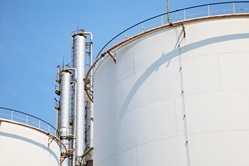
Publication
Low carbon projects: Global hydrogen and CCS market insights
Low carbon projects, especially those involving hydrogen and carbon capture and storage (CCS), play a crucial role in the journey towards global decarbonization.


Canada | Publication | April 30, 2020 - 10 AM ET
Notwithstanding the above, there does remain an appropriate and compliant way to market products and their ability to provide health benefits in direct relation to COVID-19 and the infectious agent, SARS-CoV-2.
For example, Health Canada has stated that disinfectant products meeting efficacy standards for emerging viral pathogens could make indirect COVID-19 efficacy claims for SARS-CoV-2. Such products include those where Health Canada has approved the following claims on the label:
o MERS-CoV
o SARS-CoV
o human coronavirus strain 229E

Publication
Low carbon projects, especially those involving hydrogen and carbon capture and storage (CCS), play a crucial role in the journey towards global decarbonization.
Publication
As a general remark, Indonesia has not, at the date of preparing this summary, issued any regulation on hydrogen production, distribution and trade. It is expected that the upcoming New and Renewable Energy Law will provide a legal framework for the exploitation and utilisation of various new energy sources, including hydrogen.
Publication
Indonesia has committed to achieving Net Zero Emissions by 2060, consistent with its obligations under the Paris Agreement. Carbon capture and storage (CCS) and carbon capture, utilisation and storage (CCUS) are central to this strategy, particularly in the upstream oil and gas sector. Leveraging an estimated 400 gigatons of geological storage capacity, Indonesia is positioning itself as a regional CCS hub in the Asia-Pacific.
Subscribe and stay up to date with the latest legal news, information and events . . .
© Norton Rose Fulbright LLP 2025